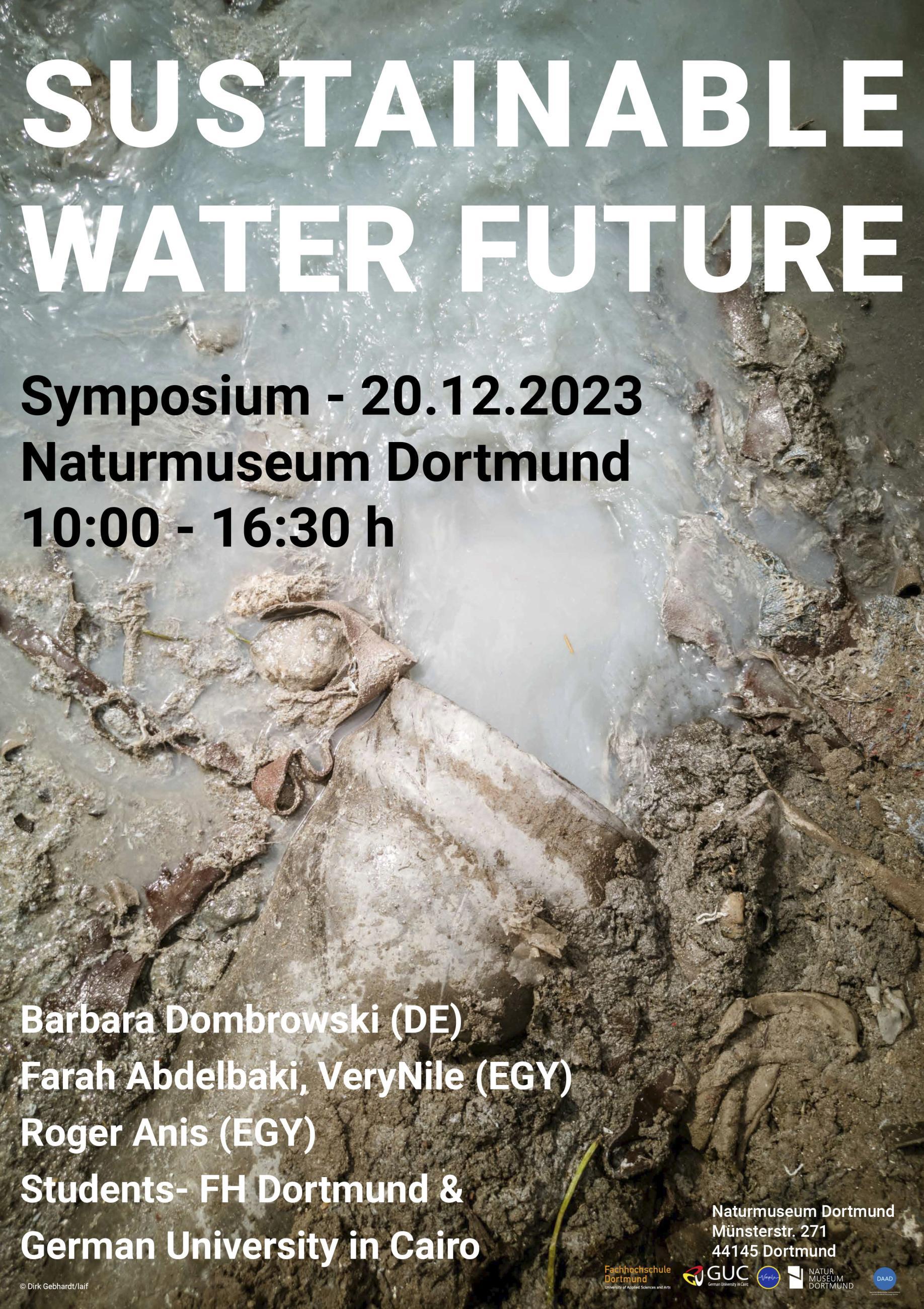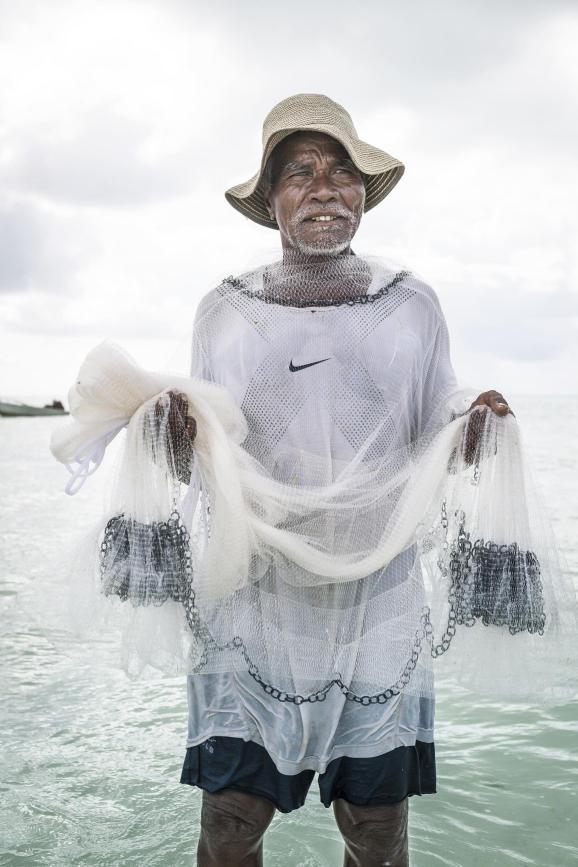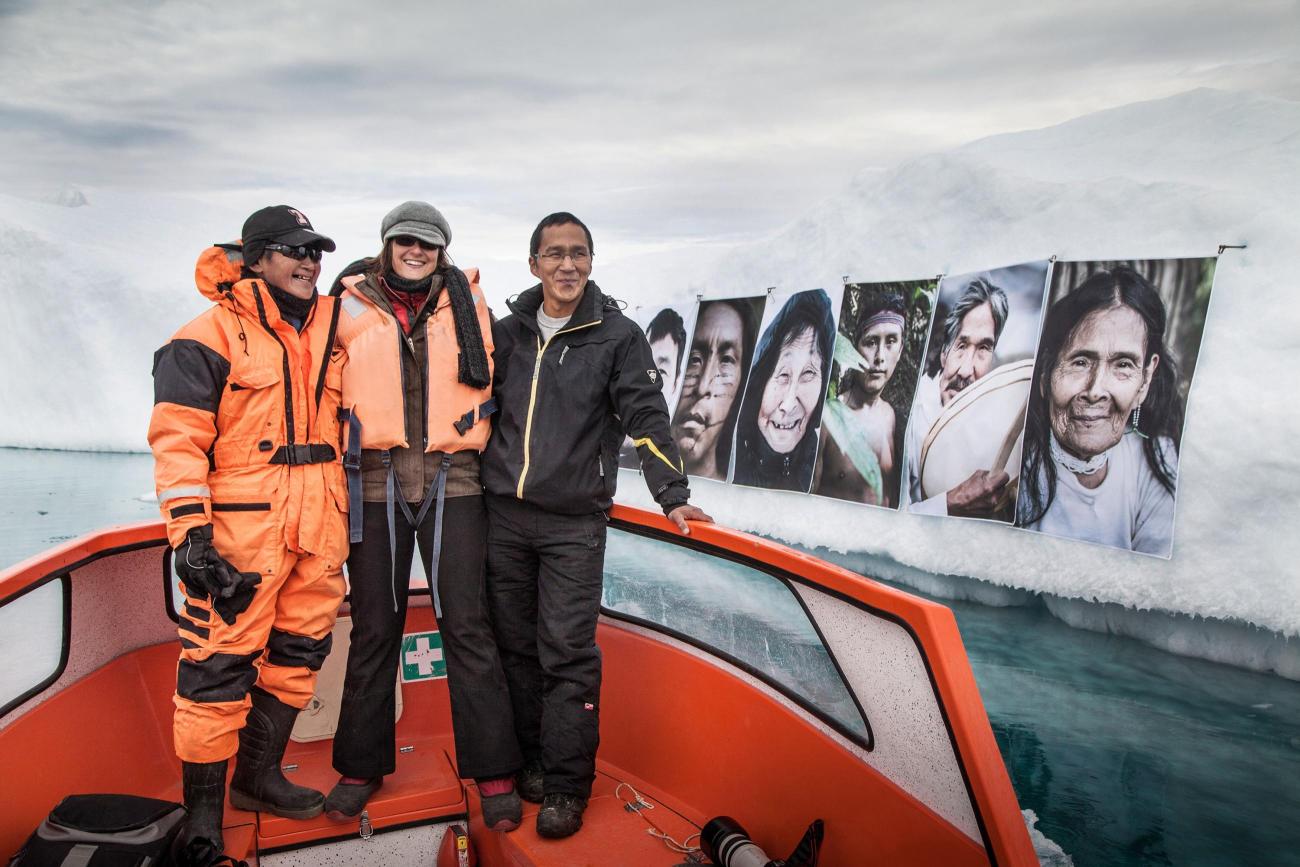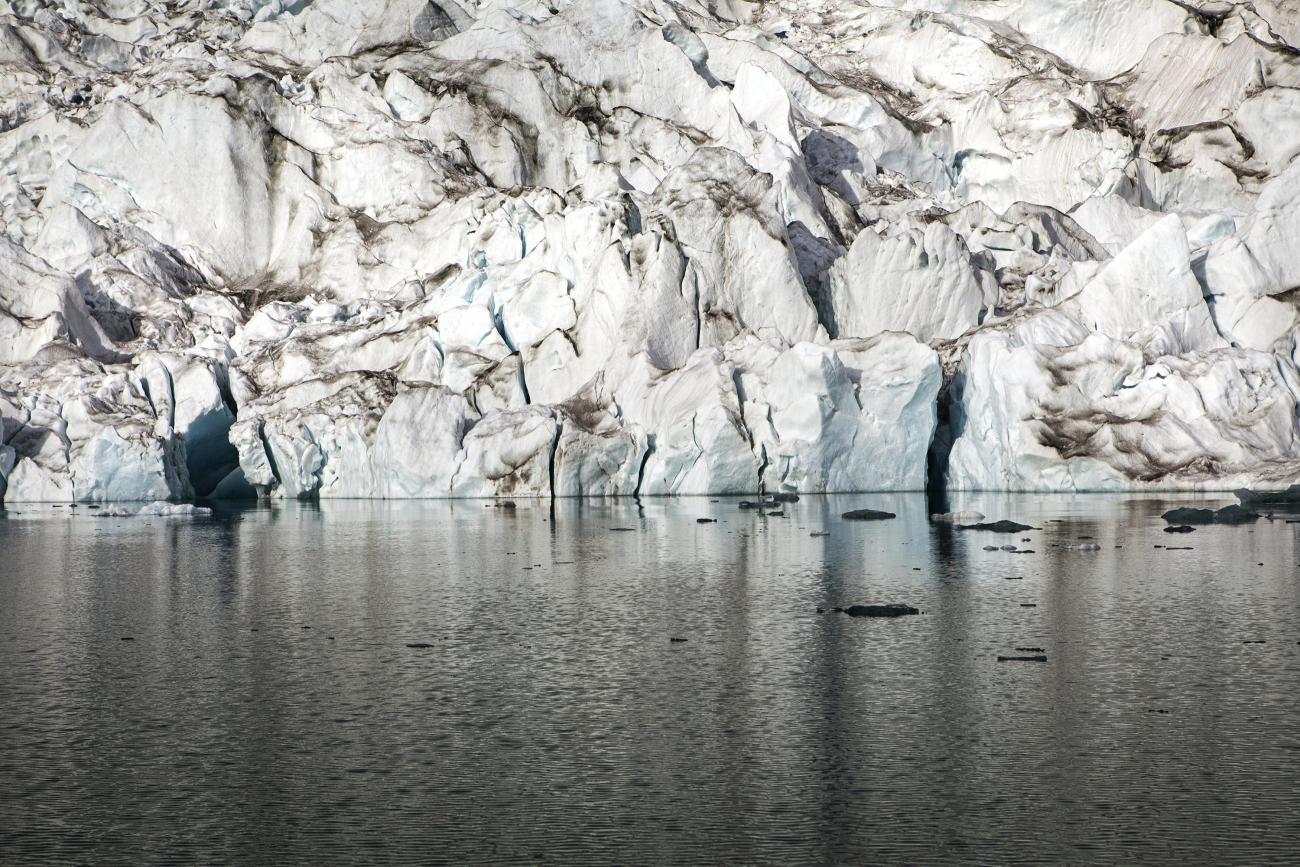Symposium - Sustainable Water Future
20.12.2023 / 10:00 - 16:30
As a result of the climate crisis, decades-old predictions about a severe water shortage that will seriously change our lives are coming true on all continents. Extreme weather phenomena such as droughts and floods are becoming more frequent. European governments are drawing up national water strategies, agricultural production has to be converted to resistant crops on a large scale and summer overheating in cities is causing high death rates - these are consequences that are visible to everyone.
The “Sustainable Water Future” photography symposium would like to look at this problem from different perspectives in international collaboration. The photographers Barbara Dombrowski (DE) and Roger Anis (EGY) present their photographic essays on this topic. Afterwards, 12 students from the two universities German University in Cairo and the FH Dortmund will present workshop results, which were implemented in collaboration with the NGO VeryNile on the Nile Island of Qursaya and the residents. Following the presentations, the speakers will exchange ideas with the audience in a panel discussion.
The symposium will be held in English.
Date: Wednesday, December 20, 2023
Time: 10:00 a.m. to 4:30 p.m
Location: Dortmund Nature Museum
Münsterstr. 271
44145 Dortmund
Schedule:
Entry from 10:00 a.m
10:15 - 10:30 Welcome by Dr. Oliver Adrian, Deputy Director of the Dortmund Nature Museum and Prof. Jörg Winde FH Dortmund, Design Department
10:30 - 11:15 Barbara Dombrowski (DE)
11:30 - 12:15 Farah Abdelbaki, VeryNile (EGY)
12:15 - 1:15 p.m. lunch break
13:30 - 14:15 Roger Anis (EGY)
2:15 p.m. - 3:15 p.m. Presentation students
3:30 p.m. - 4:30 p.m. panel discussion
Barbara Dombrowski (DE)
Barbara Dombrowski is a German photographer. She has been working on the global photo art project “Tropic Ice Dialog between Places affected by Climate Change” for 10 years, which focuses on climate change. To do this, she visited indigenous peoples on all five continents and brought together the images from the different regions in installations to show that everything is connected. She earned a degree with a focus on photography at the Dortmund University of Applied Sciences in the early 1990s. Barbara Dombrowski is a member of the laif agency in Cologne and an appointed member of the German Society for Photography (DGPh).
She works for magazines, agencies and NGOs and teaches documentary photography in Hamburg. She works as a juror and curator and gives lectures about her work Tropic Ice. In addition to the cooperation with the University of Kiel and Future Ocean in the South Pacific and Sicily region, she was able to implement a book project with the Cluster of Excellence at the University of Hamburg entitled “Everyday Worlds of Climate Change”. She presented her works in numerous national and international exhibitions.
Roger Anis (EGY)
Roger Anis is an Egyptian documentary photographer, photo editor and curator. His reports and photo essays focus on shining a spotlight on under-documented, forgotten socio-economic issues. With his work he would like to give these communities a forum in the media so that complex questions and problems receive more attention.
He received his bachelor's degree in fine arts in Egypt in 2008 and began his career as a photojournalist in 2010. In 2015, he received a degree in photojournalism from the Danish School of Media & Journalism in Denmark. Since then he has worked for various newspapers and international news agencies. His work has been published in international organizations, various international newspapers and news agencies such as AP, AFP, Getty Images, New York Times, TIME, Wall Street Journal, Newsweek, Le Monde, De Grona Amsterdam, The Guardian and many others.
He has been exhibited in, among others: Institute du monde arabe in Paris, the Hermitage in Russia, the MUCEM Museum in Marseille, the Heads on Photo Festival in Australia, the Bamako Biennale in Mali and many other exhibition locations worldwide.
VeryNile / Farah Abdelbaki (EGY)
VeryNile was launched in 2018 as an initiative that breaks down boundaries through its broad range of problem-solving ideas, a strong will to act, and its ability to bring together interdisciplinary volunteers and industry partners.
The Nile is a symbol of Egyptian heritage and a source of life for Egypt. However, according to the World Economic Forum, it is also one of ten rivers that produce 90% of the trash in the world's oceans. By cleaning the Nile, raising awareness among local people about the importance of reducing plastic consumption and empowering local communities, the NGO VeryNile ensures that the impact of its projects is evident not only at the local and regional level, but also at the global level.
VeryNile works to develop sustainable methods to clean the Nile, recycle and upcycle solid waste through partnerships with local stakeholders and at a preventative level to reduce the use of single-use plastic and reduce water pollution. Using a variety of methods and approaches, VeryNile removes more than 10 tons of plastic from the Nile every month. A workshop for recycling PET bottles and other plastic materials was set up on the Nile island of Qursaya. To achieve this, the organization works with around 60 local fishermen, 5,000 volunteers and 21 permanent employees.
Farah Abdelbaki is an innovation Management Graduate from GUC. She kicked off her career with entrepreneurship ecosystem players for 5 years namely RiseUp & the Greek Campus as a project manager then she shifted careers to marketing & became the force behind Fabrea Home’s digital transformation, finally landing in the Environmental scene by co-founding Imagine if with Omar Samra & Ahmed Gabr. Now she is in her 5th year working in awareness & communications in the environmental sector and currently with VeryNile.
Students from the FH Dortmund & GUC Cairo
12 students will present their joint work in 6 short lectures, which was created on the Nile Island of Qursaya in November 2023. The photographic series are about the employees of the NGO VeryNile, the population on the agricultural island, artists who live there and about plastic as an environmental problem or as a raw material for new products.
© FACHHOCHSCHULE DORTMUND - FACHBEREICH DESIGN, 2019 - 2024




